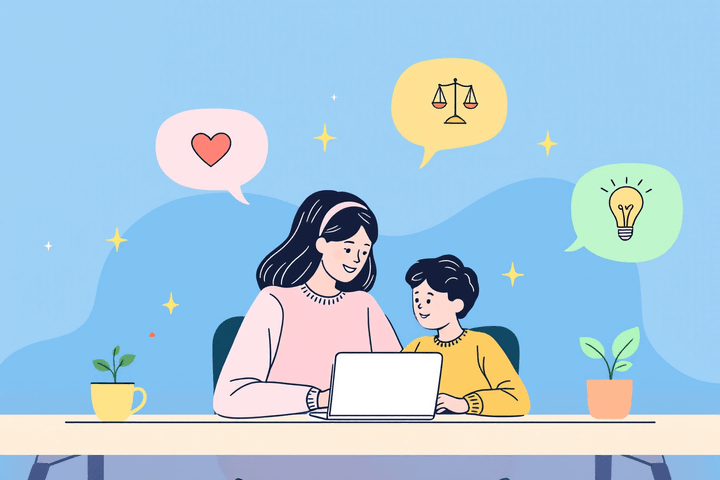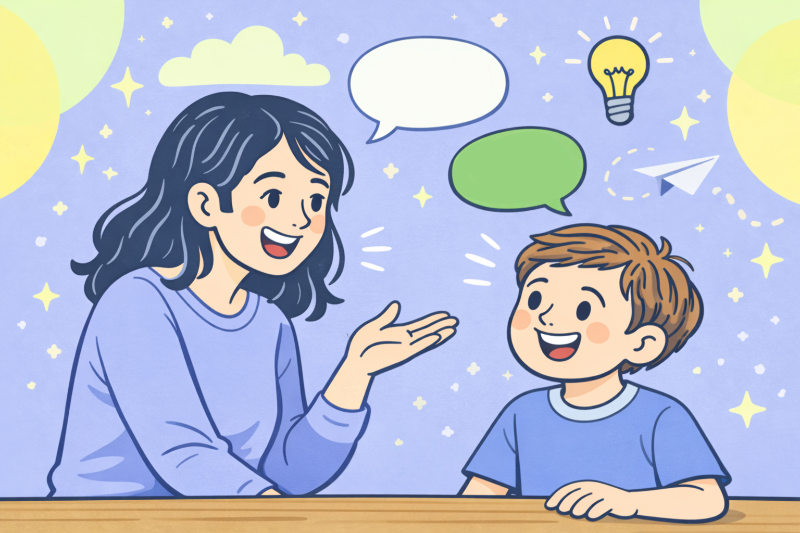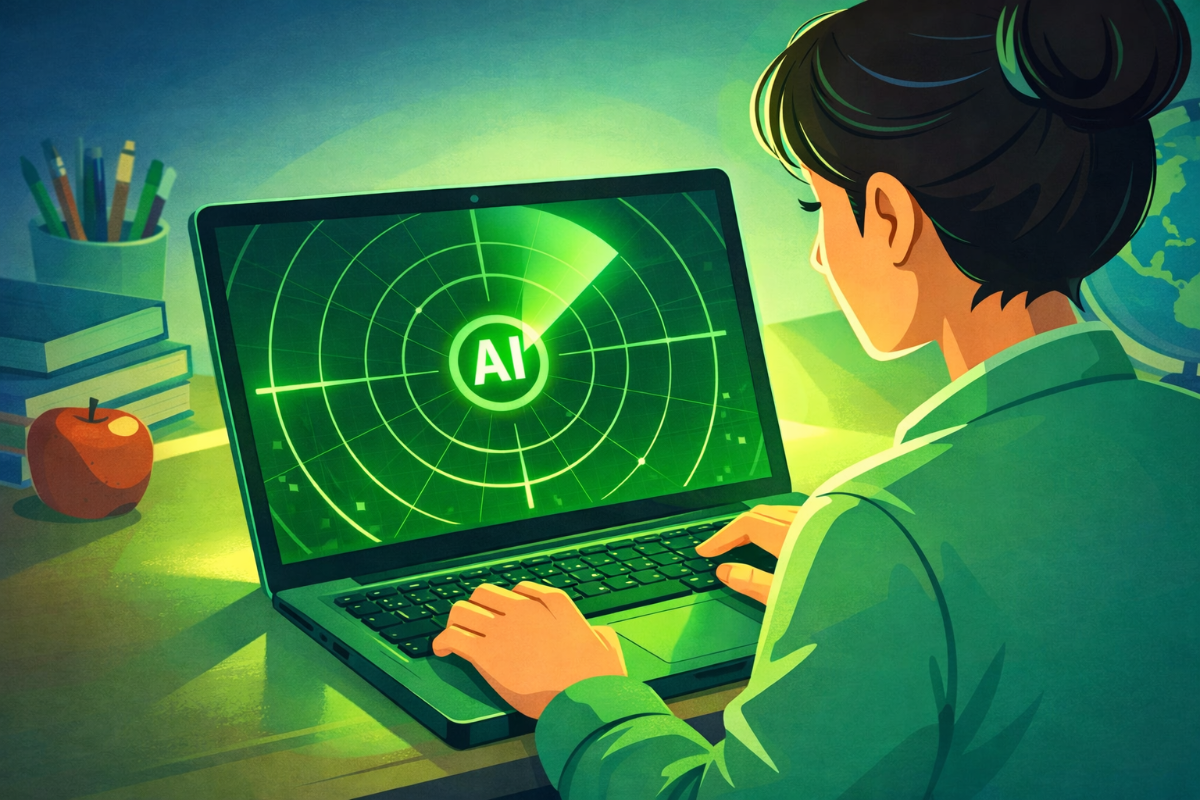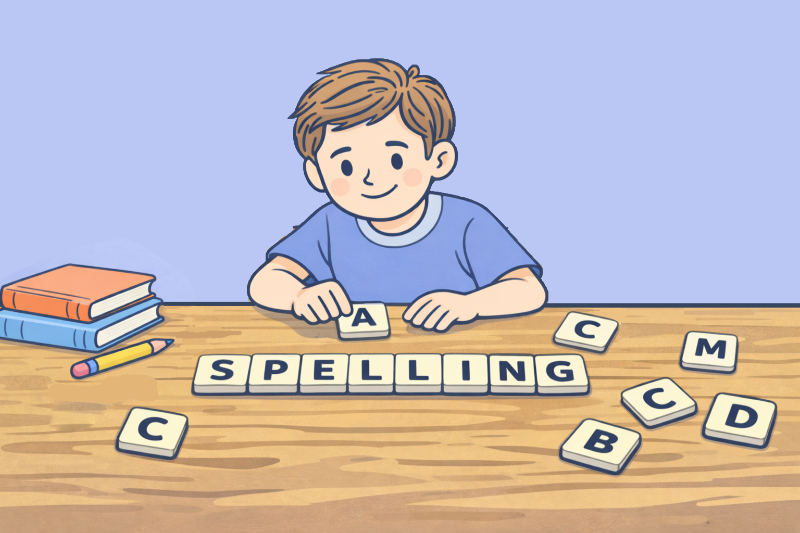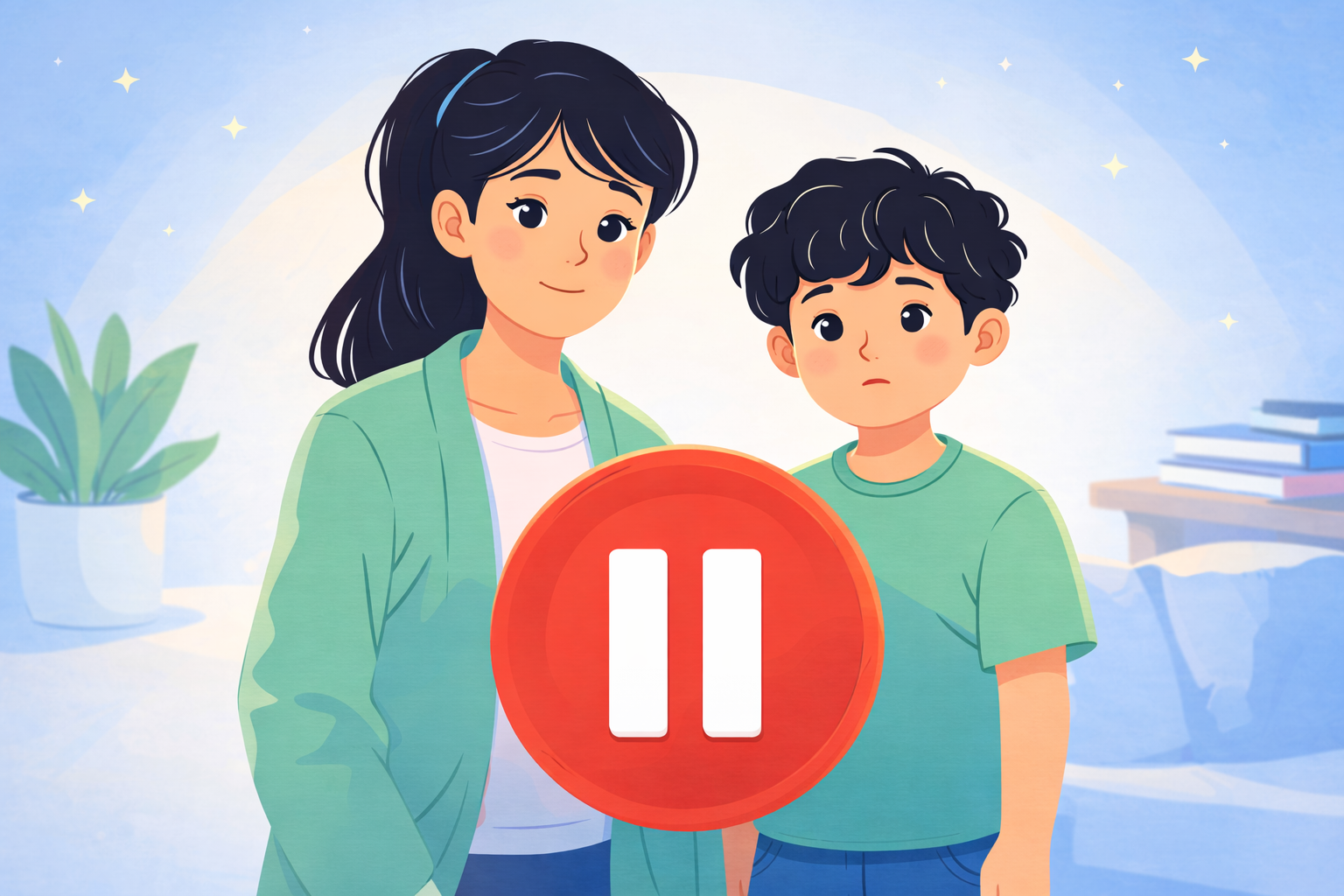Start with our AI Readiness Check
AI is already part of your child’s learning. In just a couple of minutes, discover where your family stands and what to do next.
- ✓ Your family’s AI Confidence Score
- ✓ What you’re already doing well
- ✓ Simple, practical next steps
Artificial Intelligence (AI) is becoming an increasingly significant part of our daily lives. Whether it's for schoolwork, entertainment, or social interactions, children are growing up in a world surrounded by AI. As parents, it’s important to guide them on how to use this technology responsibly and, more importantly, how to respect others while doing so.
Here are four essential things to teach kids to ensure they respect others when using AI:
1. Never Pretend to Be Somebody Else
The capabilities of AI to mimic voices or generate images are impressive, but these tools can easily be misused. Using AI to imitate someone’s face, voice, or identity without their permission is both deceptive and disrespectful.
Children need to understand that pretending to be someone else online or in the digital world can harm reputations and lead to broken trust. Encourage them to always be their authentic selves when interacting with others, whether online or offline.
Tip for parents: Monitor your child’s online activities and have open conversations about honesty and authenticity. Ensure they understand that while technology is powerful, it must be used ethically.
2. Don’t Enter Other People’s Details Into AI
It might be tempting to use AI tools to experiment with personal details or use them in creative ways. However, many chatbots and AI platforms store information indefinitely, meaning sharing someone’s personal information, such as their address, phone number, or even birth date, could lead to significant privacy concerns.
Help your child understand the importance of privacy. If they wouldn't feel comfortable sharing their own details, they should never input someone else’s without explicit consent.
Tip for parents: Reinforce the idea of consent when it comes to digital interactions. Help children grasp that everyone deserves privacy, even in AI.
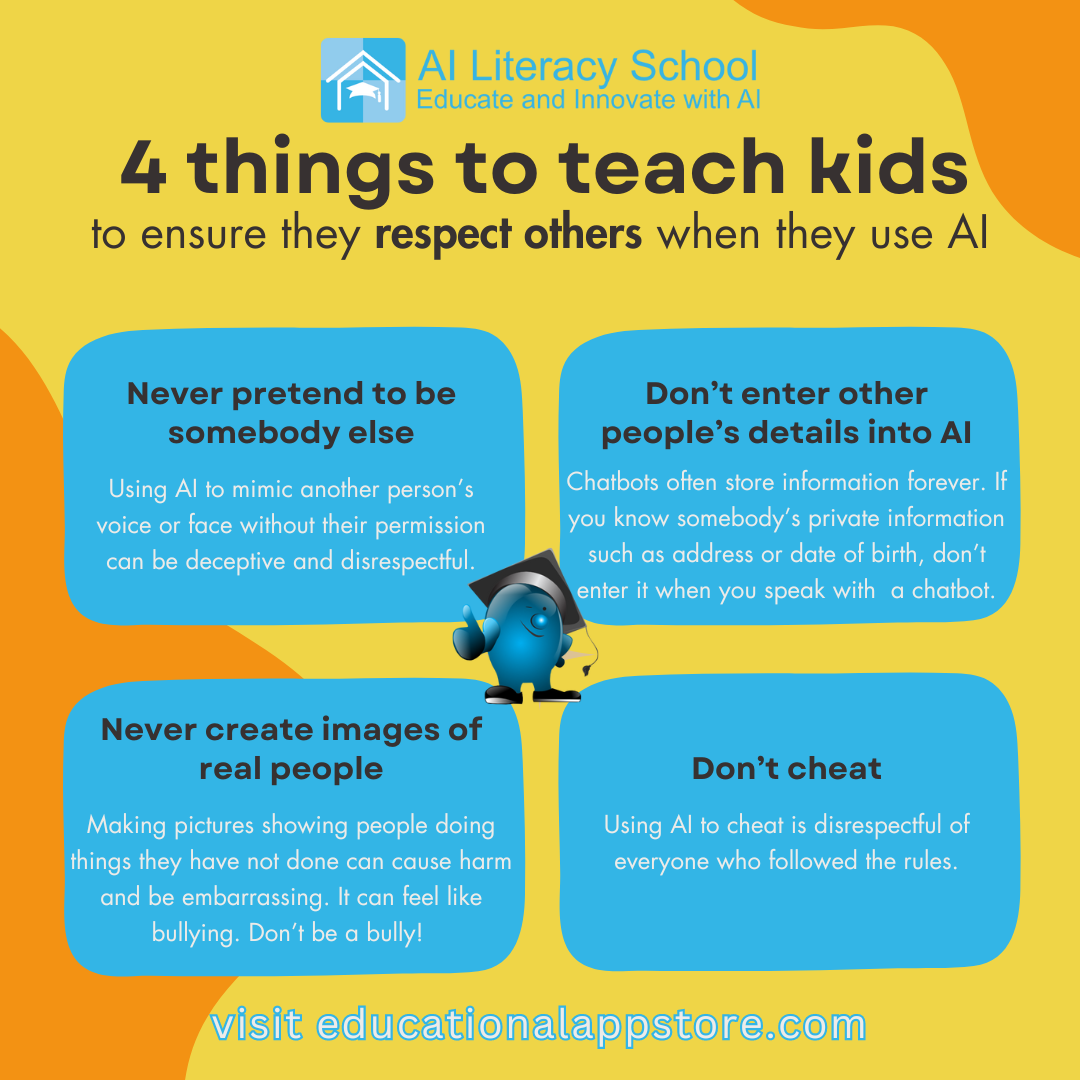
Use this image to remind kids how to be responsible with AI.
3. Never Create Images of Real People
AI tools can easily generate images that make people appear in situations they were never in. While it may seem like harmless fun, creating manipulated images of others can lead to embarrassment, humiliation, or even feel like bullying.
Making an image that shows someone doing something they haven’t done can be deeply harmful. The consequences can include damaged reputations, hurt feelings, and fractured relationships. Teaching your child about the potential harm of these AI-generated images will help them avoid causing unintentional harm.
Tip for parents: Encourage your child to create responsibly. Help them see that AI can be a wonderful tool for creativity, but it should never be used to create content that could hurt others.
4. Don’t Cheat
As AI tools become more sophisticated, they can sometimes be misused, such as helping with homework or tests. Cheating through AI is unfair to others who follow the rules and prevents your child from learning and growing.
Using AI ethically means understanding its power should enhance learning, not replace it. Cheating doesn’t help them in the long run; it only stifles their potential.
Tip for parents: Discuss the importance of integrity and fairness with your child. Emphasize that success achieved through hard work is much more valuable than taking shortcuts through cheating.
Summing Up
AI is an amazing tool, but it can be misused like any tool. By teaching kids these four essential lessons, we can ensure they become responsible and respectful digital citizens. As parents, we have the power to shape their understanding of how to use technology in a way that benefits both themselves and others.
Let’s help them understand that respect, privacy, and integrity should always guide their online interactions — even when AI is involved.
Parent Conversation Guide
A short guide to help parents start calm, confident conversations about AI use at home.

